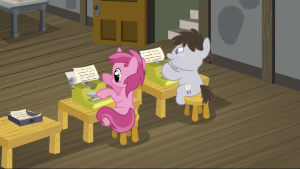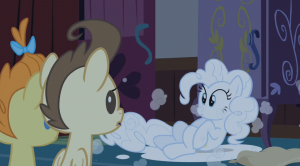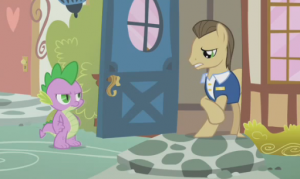Posts Tagged "word"
Reading Chinua Achebe Part 2: Community College
I was taking a cultural anthropology class where we had to read an ethnography as one of our final assignments. I read Tales of the Shaman’s Apprentice by Mark Plotkin which is another book in the “which books had a profound impact on you.”
However, when we gave our presentations someone did her presentation on Things Fall Apart which is a book of fiction. I was kind of upset that I had missed a chance to do a lot less work and reread a book I already knew revisit this amazing text.
Despite my workload, I decided to reread the book anyway. The book changed. It became a real world example of how the facts of human nature I had learned from my anthropology class could directly apply to literature. Now the book was about ethnocide, the loss of one’s culture, the power one’s culture has over our definition of self and over our aspirations, and finally how utterly lost and unstable one can become when all of this is taken away. When conformity is demanded of a society’s behaviors, when a society’s ideologies are challenged and abandoned, and when this creates changes in that society’s economy and wealth, then what that can do to the individual.
The common reading of the end of Things Fall Apart is that Okonkwo is like Judas who hangs himself for being responsible for the death of Christ, represented by the Christian. Usually an allusion makes someone evaluate the work through the context of an outside work. Achebe’s allusion worked in both directions for me, since the typical way of reading this scene seemed not quite right. I reevaluated Judas through the scope of Things Fall Apart just as much as I thought of Things Fall Apart through Judas. Did Judas kill himself out of guilt? Or did he kill himself because there was a God who loved him and now he is dead?
In the end Okonkwo’s God is dead: his traditions, his worldview, and everything. Okonkwo is treated well by the Igbo traditions and religion. When he kills the Christian, there is the epiphany that the benevolent God is dead, except it isn’t through the death of the missionary, but through the reaction of the crowd. Their inability to stand up for their way of life against a seemingly unstoppable force shows him that the gods have been acculturated to death.
It would be easy to say that Okonkwo was a victim of an evil, invasive culture, but Achebe didn’t seem to do this. Things Fall Apart seems more descriptive than prescriptive. Here are the things, sometimes they are fortunate and sometimes they aren’t. He could have ignored the mutilation of stillborn babies or the throwing away of twins in the Evil Forest. But the Igbo traditions, like all traditions, have an aspect of oppression as well as liberation; it depends upon who one is and the circumstances. This is definitely a theme to Things Fall Apart (hear that high schoolers Googling for cheats on your homework?).
With this theme, I learned Cultural Relativism can actually help create a greater and more complex plot, world, and characters. I learned a writer has more power being an anthropologist than being a nagging parent demanding the world to conform and behave. On top of that simply describing a world using your world view, people can’t help but see the same flaws you do.
Read MoreReading Chinua Achebe Part 1: High School
So like many people I learned about the death of Chinua Achebe through Facebook, and then confirmed it with Wikipedia.
I’ve only read three things by Achebe: Things Fall Apart, a short story I hated and don’t remember, and some essays that gave me mixed feelings.
Things Fall Apart is one of my “which books had a profound impact on you” books. I’ve read it about 4 times. The only long form piece I’ve read more is Shakespeare’s “Hamlet.”
High School: Okonkwo was me. Full of rage and ready to pounce on anything that would give me the opportunity to fuck it up, verbally or physically. I once had a place of status among my friends, but I learned what depression is and began questioning my faith in God. This was around the time many of my Catholic friends were going through confirmation. I talked with them hoping that they could help me with my crisis of faith, which I don’t know if any of you have had this before, but it hurts. But my questions were echoed to members of my friend’s churches, and they were told that I was “the devil trying to lead them from the path of Christ.” I wasn’t the devil, but I was burning into impotent ash. I was a kid who was lost, confused, and in pain, but I guess that’s just as dangerous to people whose faith is no stronger than wet newspaper.
Religion had seemed to take away all of my friends. My best friend who taught me how to make inappropriate jokes decided that he was going to become a priest. And apparently one who wishes to be like Christ cannot hang out with sinners.
My grades were falling. Nothing made sense. I was fighting with my family, friends, enemies, strangers… everyone was my antagonist. The people who understood me seemed far away. They weren’t in the honors classes. Yet this fucking book understood. The people I skated with understood. They appreciated that I was the voice of reason while at the same time down to punch someone in the face. My English teacher understood and came to my rescue when things got out of hand (Forgive me, but I’m not ready to tell that story yet).

“I’m not violent. I’m just teaching a lesson about not being a punk-ass bitch to a tactile-kinesthetic learner.” -Adolescent Sharif
I was a slow reader, still am. I needed longer with the book before returning it to the library. My English teacher knew that usually I would just prematurely surrender the book. This time I wanted to finish it. My English teacher was understanding. The best English teachers are. I think this is why Holden trusts the English teacher in Catcher in the Rye. This is why the written word won’t die.
I went to New Mexico with my mom for a few days. My mom told me to use this as an opportunity to relax but also catch up on the school work that had seemed too pointless and overwhelming during my state of depression. I took Things Fall Apart with me. The TSA opened my bag, because one of their sensors said my public school textbooks had suspect chemicals, which were later cleared as not being a bomb. I told my English teacher about this, and she told me to throw the book away. I told her that the book seemed just fine. She then told me to keep it and pretend we had to throw the book away. Then she pulled out a little card with student’s names and book titles. Next to mine she crossed out the words Things Fall Apart. It’s on my bookshelf, just behind my green screen.
Reading Chinua Achebe Part 2: Community College
Read MoreThe Not Completely Obsolete Typewriter
It’s been awhile since I had originally written about the stupidity of the typewriter. Years have passed, and I still think it’s dumb for a writer to try to use it in order to convey some sort of personal image as being writerly. However, when I attended a workshop in the home of poet, mystery writer, and educator John Brantingham, he presented an argument that typewriters weren’t completely useless.
In fact this argument was compelling enough to make me start actively seeking out typewriters in antique shops. Although, I still haven’t found a cheap one that isn’t at least partly, if not completely broken.
Brantingham has two small, cute, purely mechanical typewriters in his home in addition to his computer machine. We had taken a break from his lecture on novel writing and discussion went to the typewriters. I mentioned my blog inspired by UCI students who were impressed by some poet who typed on a typewriter. They didn’t think he was an impressive poet because of his poetry, but because he typed his poems on a typewriter (the “real” way).

“I thought I could fool editors by typing my poems in American Typewriter, but when I got a rejection, I knew it wasn’t working.”
Although Brantingham would jokingly deny ever having thought out a thing in his life, everything he ever says always seems as though a careful amount of time and critical thinking had gone into it. Maybe it was just that his words always seem free of bullshit, which sets a very high standard for a creative writing teacher. Many of them have their snake oil that they buy into, in the worst of cases that snake oil destroys writers. “Destroy” can mean innumerable things.
“You know, the great thing about typewriters is that you can’t go back and edit.” This solves the problem of writers going back through their work and tinkering as they go, a common problem.
I had this problem in the past and considered a typewriter to force myself out of it. However, when I thought of using my parent’s electric 1000watt motorized Snorlax sized typewriter, I just thought it would be easier to just be a terrible writer (the kind that splits infinitives apparently).
Brantingham told me that I should buy a cheap, small, purely mechanical typewriter which would be built to last forever, and it should only cost me about $25. To be fair the last time I went antiquing in Pomona, the cheapest I found was about $35 and most of the ones under $100 were mostly just broken beyond explanation of why they weren’t in the trash. Although, I think he said something about getting one made around 1920 while the ones I looked at were 1960’s. I don’t really remember, sorry. Also he’s probably better at antiquing than I am. Also I only went to like five places.

Antiquing? Is this a CKY/Jackass reference joke using a scene from My Little Pony? Yes. Eclecticism is something I pride myself on.
I told Brantingham, “Well, you still have to retype it.” I mean come on! The digital world is sucking us all into it (Digimon was right). Brantingham had answers for this. He has answers for everything. I fear the day he doesn’t have an answer the way people in nowhere towns fear terrorists might attack their local Wal-Mart.

“I realized how dependent the Nowheresville, Kentucky’s economy is on the Wal-Mart, so now I am afraid to go to work in case there is a terrorist attack, like when they blew up the towers.”
He explained that typing your work all over again sentence for sentence and word for word will help you think critically about what you’ve written. It highlights syntax, word choice, and tense shifts as well as other problems. It’s perhaps the most in depth first edit you can get.
I think we all could benefit from retyping our work, but wait a minute. Couldn’t we just print it out? Why can’t I just use willpower to not edit?
Well, while writing you’re usually fighting a lot of different urges to do other things. Writing is hard, and you might want to do something less hard. Ron Carlson wrote an entire book about this aspect of writing. This method would take willpower which could be diverted to your not checking Facebook or going outside and getting some Taco Bell when you should be writing.

“The machine says you have just enough willpower to go 230 words before watching more low quality uploads of ‘Rocket Power’ on Youtube.”
That caption reminds me; the internet might be a good reason to invest in a typewriter.
Edit: Upon reading this blog, Brantingham explained to me the internet is the best place to buy typewriters. This blew my mind, because I just imagined shipping costs would be ridiculous. I guess typewriters fit into those “fits it ships” boxes.
Read More


